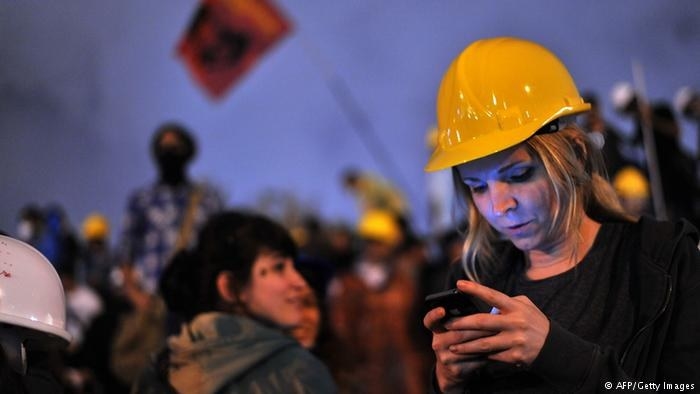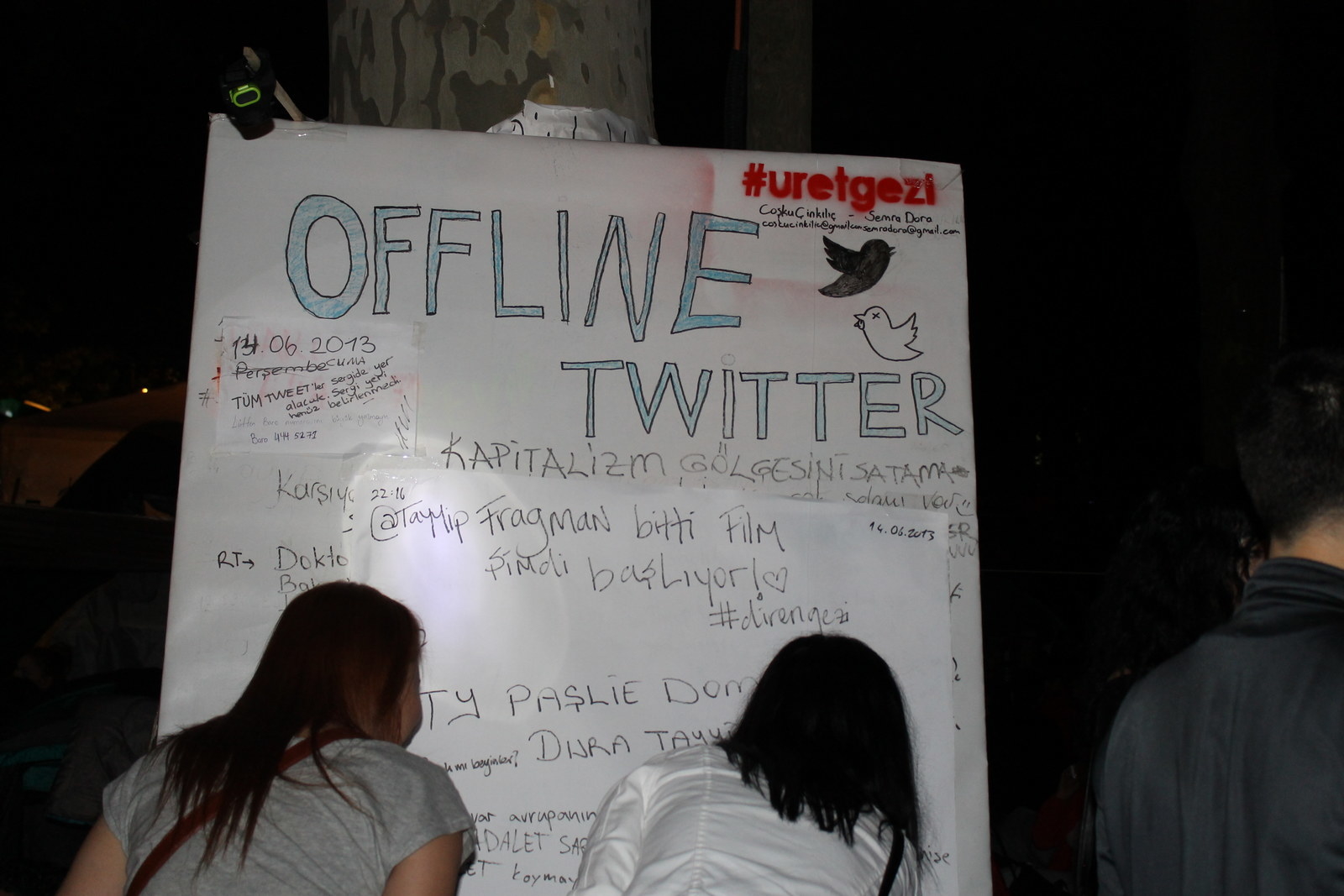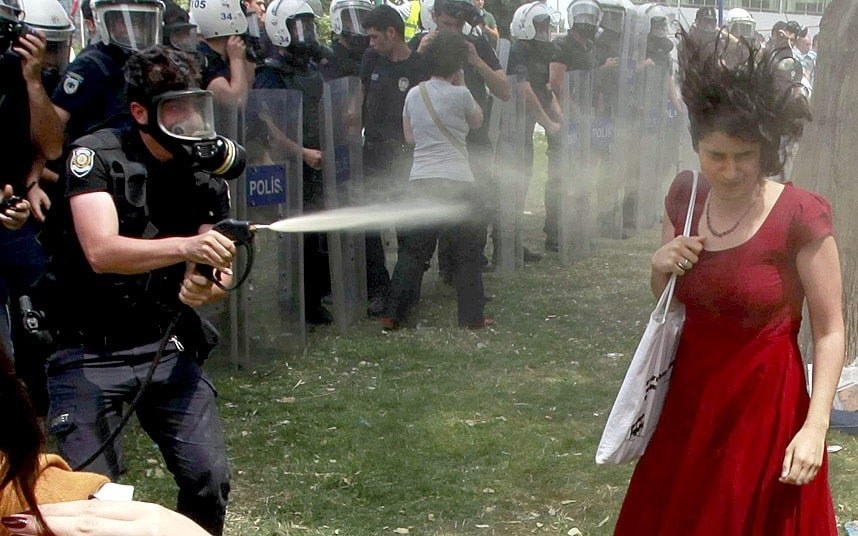Gezi Park Protests


Turkish Press

Use of Social Media in Protests

Mobilization Theory and Social Media
Resource mobilization theory “is a structural perspective of social movements that takes grievances as a given and thus seeks to explain the emergence, persistence, and decline of social movements by examining how social actors create or gain access to key resources to pursue a common agenda” (Corte, 2013, p.32). Resource mobilization theory makes clear that both the accessibility of applicable resources and peoples’ ability to successfully use such resources adequately is fundamental to social movements (Hamdy, 2009). One of the most significant impacts of the use of social media in the Occupy Gezi movement is the way it changed the flow of social mobilization. Social media offered both speed in communication transmissions and information sharing and a degree of social interactivity that the resource mobilization theory identified and deemed necessary for successful social mobilization;
Citizens use Social Media

Internet Censorship

Feminist Discourse

Conclusion

References
Corte, U. (2013). A Refinement of Collaborative Circles Theory: ResourceMobilization andInnovation in an Emerging Sport. Social Psychology Quarterly, 76(1), 25-51
Eltantawy,N & Wiest, J. (2011). Social Media in the Egyptian Revolution:ReconsideringResource Mobilization Theory. International Journal Communication, 5,1207-1244.
Langman, L. (2005). From virtual public spheres to global justice. A critical interworked socialmovements. Sociological Theory, 23(1), 42-74
Manal (2011). We r trapped inside a building [Twitter post]. Retrieved fromhttp://twitter.com/mfatta7/status/29965109077999616
Hamdy, N. (2009). Arab citizen journalism in action: Challenging mainstream media,authorities and media laws. Westminster papers in Communication andCultures, 6(1),92-122
Gezi Park Protests. (2013). In Amnesty International. Retrieved from https://i.guim.co.uk/img/static/sys-images/Guardian/Pix/pictures/2014/5/29/1401403783689/turkey2-008.jpg?w=300&q=55&auto=format&usm=12&fit=max&s=3551ab7c2804a0cbce95234aaa449cc1
Tekay, C. & Ustun, Z. (2013). A History of Feminism in Turkey and Feminist Resistance inGezi.
Wilson, C. & Dunn, A. (2011). Digital Media in the Egyptian Revolution: DescriptiveAnalysis from the Tahrir Data Sets. International Journal of Communication.

